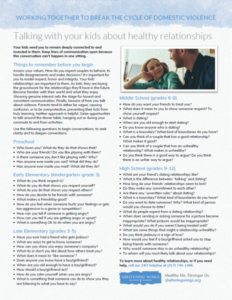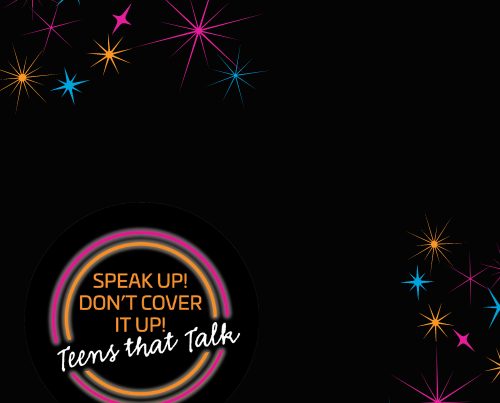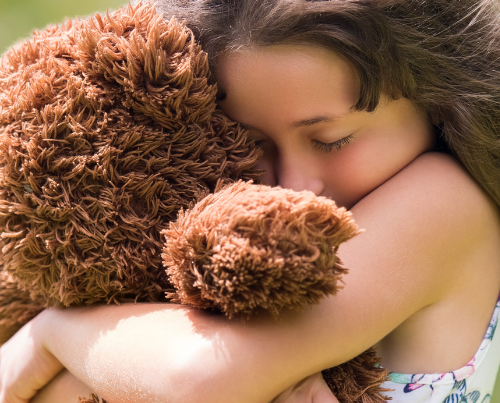Your tweens and teens probably know what favorite flavor of ice cream Mom thinks is best or the lake in which Dad likes to fish. Do they also know how you think people in loving relationships should treat each other?
Every child will someday care for someone outside the family, and our kids are dating (or “talking”) at younger and younger ages. Can we do more than just hope they get into relationships that are healthy? Yes!
We can lay the groundwork for safe, healthy dating long before it begins.
Talking about relationships may not sound as easy as discussing food or fishing preferences, but they don’t have to be “call a family meeting” kinds of conversations. In fact, you’ll be more effective if you can teach your children about healthy relationships as you all go about your daily lives.
Because your kids are learning from you already.
Start Before They Can Walk … and Don’t Stop
Children begin learning as infants, Dr. Jack Shonkoff, Director of the Center on the Developing Child at Harvard University, tells UNICEF, “and we need to understand how much what happens early on can affect things later on.”
From a prevention perspective, then, it’s never too early to talk to your kids about what healthy and unhealthy relationships look like. You can ask preschoolers questions such as, “Who loves you? What do they do that shows they love you?” Elementary-age kids can answer, “What do you do that shows you respect someone else?”
Conversations with middle-schoolers can get a little more probing. Resist the urge to argue with the answer to a question such as, “When do you think you’ll be old enough to start dating?” When you’re asking questions like the following, be in listening mode:
- How do you want your friends to treat you?
- Are there any unwritten rules about dating?
- Should a relationship have boundaries? What kind of boundaries do you have?
Tweens and Teens: When the Risk Skyrockets
When you have developed a good relationship with your child over the first decade of his or her life, you can’t be faulted for believing it will continue into the tween and teen years. But even teenagers who are well-behaved at home and make good grades in school aren’t immune to unhealthy relationships.
Recent studies have shown that large numbers of teens don’t tell their parents that the person they’re dating has demanded sex (80%), harassed them through technology (75%) or made them scared not to respond to a message (78%).
It’s little wonder, then, that so many people are victimized by domestic abusers during their lives: Many women and men learn to misinterpret negative behaviors as love during their early relationships.
Regardless of how you and your tween or teen get along, you remain the person best-positioned to provide the building blocks they need to understand themselves and the world around them.
One thing bears repeating: You’ll be more effective if you can talk about good and bad relationships as a matter of course. Many teens resist formal talks with their parents but can slip into conversations while shopping for clothes, discussing a movie or driving home from an extracurricular activity.
“Talking With Your Kids About Healthy Relationships” is a valuable resource of age-appropriate conversation-starters. A few examples for teens:
- What are your friends’ dating relationships like?
- What kind of person would you date?
- How would you feel if a boyfriend or girlfriend asked you to stop being friends with someone?
- Do you think jealousy is a sign of love?
A caveat: You have to be truly interested in hearing your child’s thoughts. Your goal is to get them talking, not to tell them they’re wrong or to get angry at what they say. Recognize that their relationships are as important to them as your own and treat them with respect.
You’ll find your own relationship with your teen will get stronger, too.





